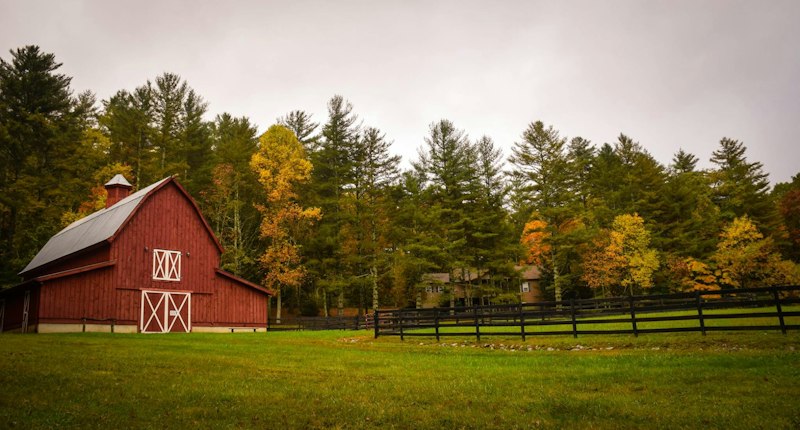Ghana, a country located in West Africa, was once colonized by the British. In the not-so-distant past, the region now known as Ghana was home to several indigenous tribes, including the Akan, Ga-Adangbe, and Ewe peoples. These tribes had their own distinct cultures, languages, and systems of governance.
However, in the late 19th century, European powers began a scramble for control over African territories. The British, driven by economic interests and a desire to expand their empire, set their sights on what is now modern-day Ghana. They aimed to exploit the region’s abundant natural resources such as gold, timber, and cocoa.
Formally, the process of colonization began in 1874 when the British established a protectorate over the coastal areas, known as the Gold Coast. Over time, the British expanded their control inland, through both diplomatic means and military force. By 1902, they had gained full control over the territory.
Under British rule, Ghana experienced significant changes. The British implemented policies that favored their own economic interests, often at the expense of the local population. They introduced cash crops like cocoa, which became a major export commodity but also led to the displacement of traditional agricultural practices.
Political institutions were restructured, with power centralized in the hands of the British colonial administration. Indigenous systems of governance were marginalized or dismantled, and the British imposed their own legal and administrative structures.
The struggle for independence in Ghana gained momentum after World War II, with leaders like Kwame Nkrumah leading the charge. After years of activism and political negotiations, Ghana finally achieved independence from Britain on March 6, 1957, becoming the first sub-Saharan African country to do so.
Ghana was colonized by the British, who sought to exploit its resources and extend their influence in Africa. The impact of colonization can still be seen in Ghana today, both in its political and economic structures and in the resilience of its people who fought for independence.
Untold Stories: The Fascinating History of Ghana’s Colonial Rulers
Ghana, a country known for its rich cultural heritage and vibrant traditions, holds a captivating history of colonial rule. Delving into the untold stories of Ghana’s colonial rulers unveils a tapestry of conquests, struggles, and cultural exchanges that shaped the nation we know today.
Picture this: a time when European powers sought to expand their empires across the globe, with Africa becoming a focal point of interest. Ghana, then known as the Gold Coast, became an enticing land for colonial powers due to its abundant natural resources, particularly gold and ivory. But it wasn’t only the wealth that drew them in; tales of Ghana’s thriving commerce and advanced civilizations spread like wildfire.
The British Empire emerged as the dominant force in Ghana’s colonial era. They established forts along the coastline, gradually extending their influence inland. The Dutch, Danes, and Portuguese also played their part, leaving behind remnants of their presence in the form of castles and trading posts scattered along the coast.
Tracing the footsteps of these colonial powers, we unearth intriguing stories of clashes and alliances. Local chiefs, eager to maintain their authority, often entered complex negotiations with the Europeans, resulting in treaties that were sometimes exploitative. These alliances birthed a blend of cultures, leading to the rise of coastal communities where African and European customs seamlessly fused.
The transatlantic slave trade left an indelible mark on Ghana’s history, with numerous forts serving as grim reminders of this dark period. Cape Coast Castle and Elmina Castle, for instance, stand as haunting testaments to the horrors endured by enslaved Africans before their journey across the Atlantic.
However, the story of Ghana’s colonial rulers is not solely one of oppression. It is also a narrative of resistance and resilience. Figures like Kwame Nkrumah emerged as leaders, spearheading the fight for independence. The struggle for self-determination eventually culminated in Ghana becoming the first sub-Saharan African country to gain independence from colonial rule in 1957.
Today, Ghana embraces its past as a means of understanding its present and shaping its future. The echoes of history can be heard in the vibrant cultural expressions, the diverse languages spoken, and the unyielding spirit of its people.
Exploring the fascinating history of Ghana’s colonial rulers unveils a multifaceted narrative that intertwines triumphs and tragedies. From the arrival of European powers seeking wealth and influence to the eventual quest for independence, Ghana’s story stands as a testament to the enduring human spirit and the power of a nation determined to shape its own destiny.
Unveiling Ghana’s Colonial Past: Which Nation Held the Reins?
When it comes to exploring Ghana’s colonial past, one cannot help but wonder which nation held the reins during this transformative period. The history of colonialism in Ghana is a tale of power struggles, exploitation, and cultural clashes. In this article, we will delve into the details and shed light on the dominant colonial forces that shaped Ghana’s destiny.
One of the key players in Ghana’s colonial history was Britain. British colonial rule in Ghana spanned over a century, starting with the arrival of the British trading companies in the 16th century. The British gradually gained control over the coastal areas and expanded their influence inland. They established forts and trading posts along the coast, primarily to facilitate the lucrative transatlantic slave trade. Over time, Britain extended its control over the entire region, transforming it into the Gold Coast colony in the late 19th century.
However, the British were not the only European nation involved in Ghana’s colonization. Portugal, the first European power to make contact with the region, played a significant role in establishing the foundations for future colonial ventures. Portuguese traders arrived in the 15th century and established strong relationships with local chiefs. Their presence laid the groundwork for subsequent European powers vying for control in the area.
Another European nation that left its mark on Ghana’s colonial landscape was the Netherlands. The Dutch, known for their involvement in the Atlantic slave trade, built forts and engaged in trading activities along the coast. They held a considerable amount of influence until they were eventually ousted by the British in the late 19th century.
France also had a presence in Ghana, albeit to a lesser extent. The French established a few trading posts and forts along the coast, but their influence was overshadowed by the British and Dutch presence in the region.
As we peel back the layers of Ghana’s colonial past, it becomes evident that multiple nations played a role in shaping the country’s history. While Britain dominated as the primary colonial power, Portugal, the Netherlands, and France all left their imprints on the region. This complex interplay of colonial forces not only influenced the political and economic landscape of Ghana but also had profound social and cultural ramifications that continue to resonate today.
Ghana’s colonial past was marked by the influence of several European powers. The British emerged as the dominant force, but Portugal, the Netherlands, and France also left their indelible marks. By understanding the multifaceted nature of Ghana’s colonial history, we can gain valuable insights into the nation’s journey toward independence and the ongoing process of defining its identity in the post-colonial era.
From Empire to Independence: Tracing Ghana’s Colonial Journey
Introduction:
Have you ever wondered how Ghana transformed from being a British colony to an independent nation? Ghana’s colonial journey is a fascinating tale of struggle, resilience, and eventual triumph. This article will take you on a captivating journey through the key milestones that shaped Ghana’s transition from empire to independence.

The Arrival of the British:
In the late 19th century, the British arrived on the shores of present-day Ghana, then known as the Gold Coast. Initially, the British were drawn by the region’s abundant natural resources, particularly gold and ivory. They established coastal trading posts and gradually extended their influence inland, taking control over local communities and kingdoms.
The Rise of Colonial Rule:
As the British solidified their presence, they implemented policies that favored their economic interests. The lucrative slave trade was abolished, but it was replaced with the exploitation of resources and forced labor. Indigenous institutions were marginalized, and the British imposed their legal and administrative systems.
The Emergence of Nationalism:
Despite the oppressive colonial regime, a spirit of nationalism began to emerge in Ghana. Educated Ghanaians, such as Kwame Nkrumah, rose to prominence and started advocating for independence. Nkrumah, a charismatic leader, became the face of the movement, inspiring others to join the cause.
The Road to Independence:
Ghana’s path to independence was marked by protests, strikes, and political negotiations. Through non-violent means, the people of Ghana demanded self-governance and an end to colonial rule. In 1957, after years of relentless struggle, Ghana became the first sub-Saharan African country to gain independence from colonial rule.
Legacy and Impact:
Ghana’s fight for independence inspired other African nations, igniting a wave of decolonization across the continent. The nation became a beacon of hope and a symbol of African pride. Ghana’s transition from empire to independence serves as a reminder that determination and unity can overcome even the most formidable challenges.
Conclusion:
Tracing Ghana’s colonial journey unveils a remarkable story of resilience and triumph. From the arrival of the British to the emergence of nationalism and the eventual attainment of independence, Ghana’s history is a testament to the indomitable human spirit. The struggles faced by Ghana serve as an inspiration for nations striving for freedom and self-determination. By understanding this historical journey, we gain a deeper appreciation for Ghana’s rich heritage and the significance of its path to independence.
Exploring the Legacy: How Did Ghana’s Colonizers Shape its Identity?
Ghana’s identity is a tapestry woven from the threads of its rich history, deeply influenced by its colonizers. Exploring the legacy of Ghana’s colonizers unveils a narrative that has shaped the nation’s identity in profound ways. From the early encounters with the Portuguese to the eventual dominance of the British, Ghana’s journey through colonization is a chapter that cannot be ignored.

The arrival of the Portuguese in the 15th century marked the beginning of Ghana’s encounter with European powers. They established trading posts along the coast, introducing new goods and ideas to the region. This initial contact laid the foundation for future interactions and set the stage for subsequent waves of colonization.
However, it was the British who left an indelible mark on Ghana’s identity. The Gold Coast, as it was known at the time, became a British colony in the late 19th century. Under British rule, Ghana experienced significant transformations in its political, social, and economic landscape.
The imposition of British institutions and systems had a lasting impact. Education became a cornerstone of their colonial strategy, resulting in the establishment of schools and universities. This educational foundation laid the groundwork for Ghana’s intellectual and academic prowess, shaping its future leaders and thinkers.
The British also introduced Christianity, leaving an enduring religious influence on Ghana’s cultural fabric. Churches became centers of community life, providing not only spiritual guidance but also spaces for education and social gatherings. Today, religion continues to play a vital role in Ghanaian society, with a diverse mix of beliefs coexisting harmoniously.
Economically, the British exploited Ghana’s resources for their gain. Cocoa, gold, and other valuable commodities fueled the British economy, leaving a lasting imprint on Ghana’s economic structure. Although Ghana eventually gained independence, the economic legacy of colonization persists, with challenges and opportunities intertwined.
In summary, Ghana’s colonizers have left an indelible mark on its identity. From the early encounters with the Portuguese to the enduring influence of the British, Ghana’s journey through colonization shaped its institutions, religion, education, and economy. Exploring this legacy enables us to understand the complexities of Ghana’s identity and appreciate the resilience of its people in forging a path forward.